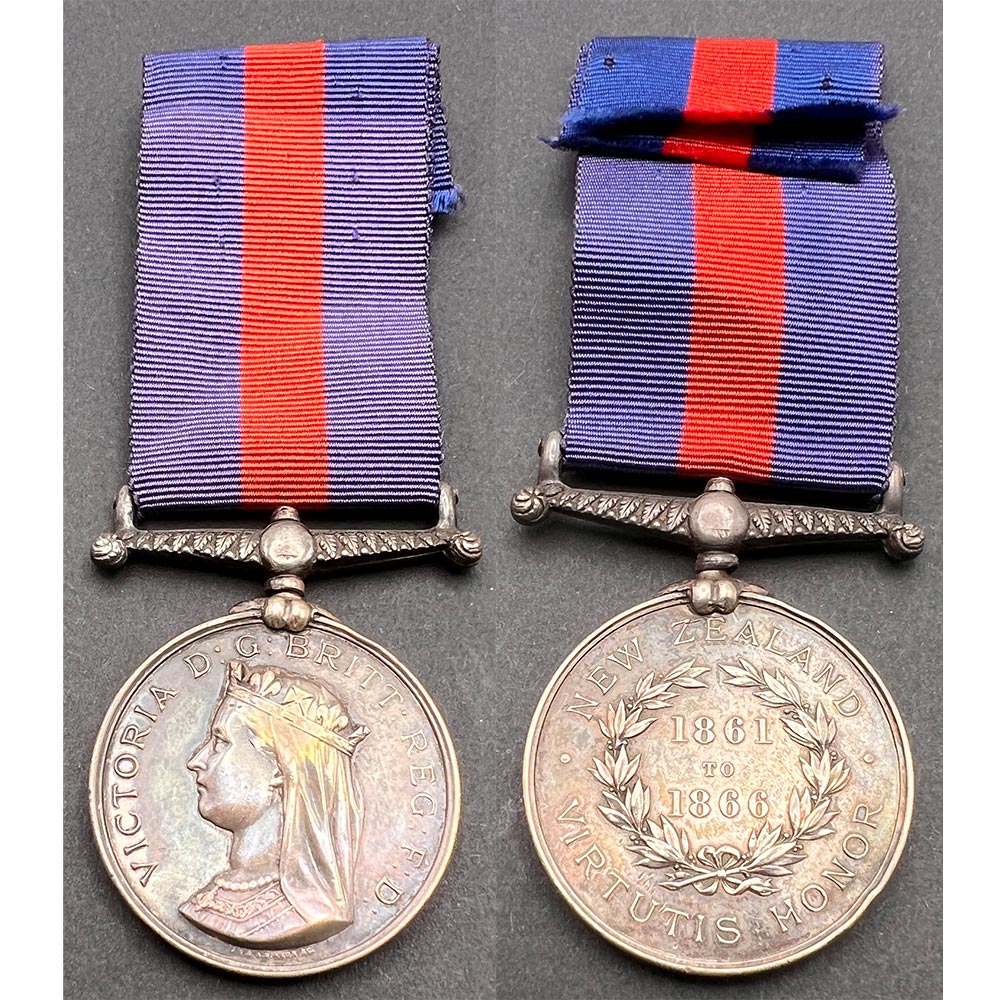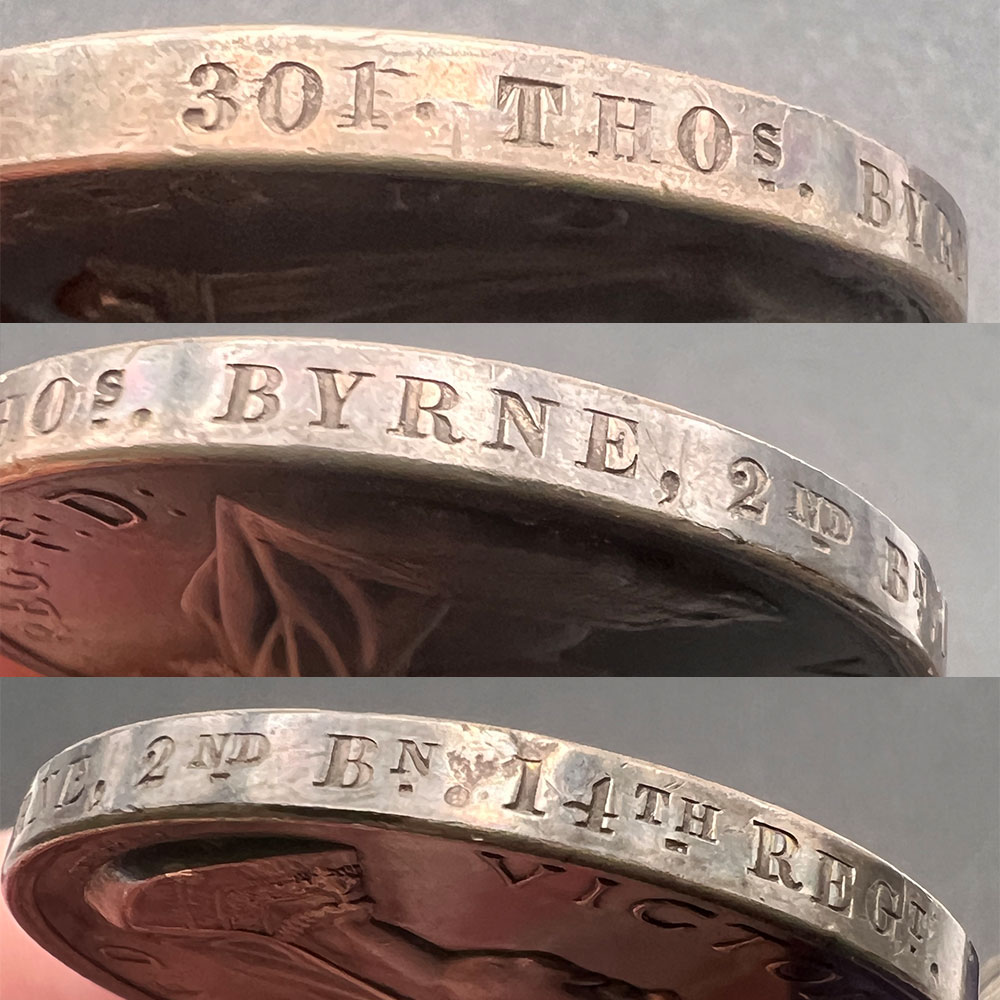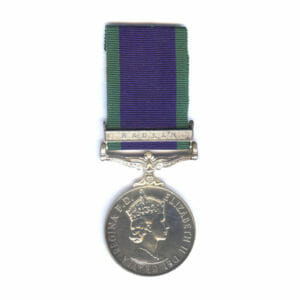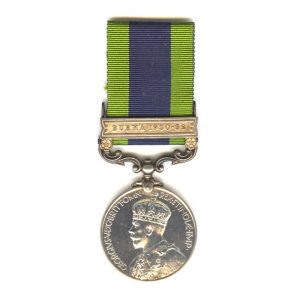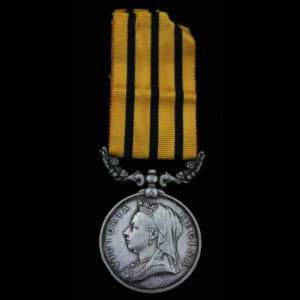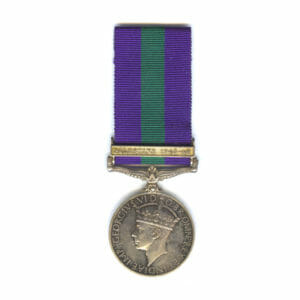Description
New Zealand War Medal, 1861 to 1866, 301 Private Thomas Byrne, 2nd Bn 14th Foot. Born in Tinahely, County Wicklow, Ireland, spent 10 years in New Zealand and Australia.
Officially impressed: “301 Pte Thos Byrne, 2nd Bn 14th Regt”
Confirmed on the medal roll seeing significant action in the New Zealand “Waikato” Wars.
The medal roll recalls he earned the following battle honours:
“Employed on active service in the Field from January 1861 to September 1866 including the Waitara Campaign and actions, Waikato Campaign and the actions of Koheroa, Paparata, and Rangiriri. The Wairganna Campaign and the actions of Kutuki, Putahi, Otapawa and Waikoko.”
The 14th Regiment is also known as the Prince of Wales Own West Yorkshire Regiment.
Thomas Byrne was born circa 1837 in the Parish of Cross Patrick, in the town of Tinahely, County Wicklow, Ireland.
Attested for service on 4th May 1858 at Carlow.
Discharged on completion of his 21 years of service on 23rd September 1879.
Most of his career was spent overseas particularly in both New Zealand and Australia.
Out of 21 years 81 days, 9 years and 183 days were spent on service overseas spending:
New Zealand, 5 years 297 days
Australia, 3 years 251 days.
“His conduct has been good he is in possession of four good conduct badges”
However, particularly in the earlier stages of his career which included severe fighting in New Zealand he was poorly behaved:
“His name appears 22 Twenty Two times in the Regimental Defaulters Book including 2 Trials by Court Martial.”
He appears to have slowly improved his conduct with a few mishaps.
Not long after enlisting on 25th May 1859 he was arrested and put in prison all the way from May until August 1859 for:
“Tried and Sentenced to be imprisoned for firing off his rifle loaded with ball.”
He was again put in prison on 25th September 1864, “Imprisoned by Commanding Officer” for 6 days.
And again the next month on 23rd October 1864, “Imprisoned by Commanding Officer” for 6 more days.”
On 10th October 1868 he was “In Confinement” for “Absence and Habitual Drunkenness”
Being “tried and convicted and sentenced” on 13th October 1868.
After his discharge in 1879, he chose to settle in Bradford.
